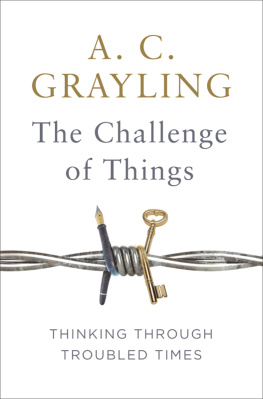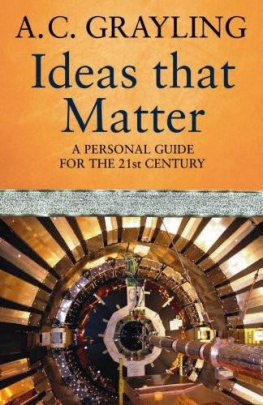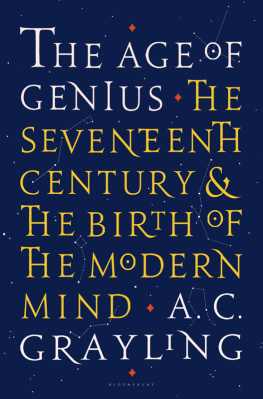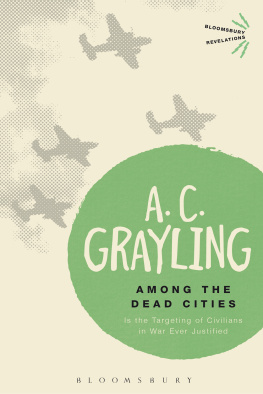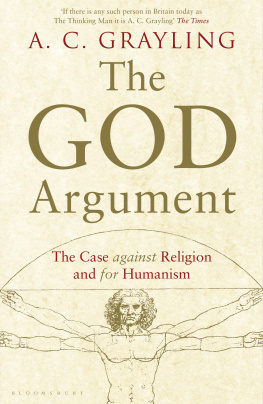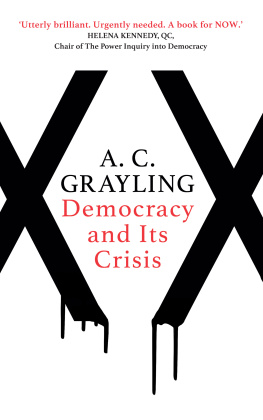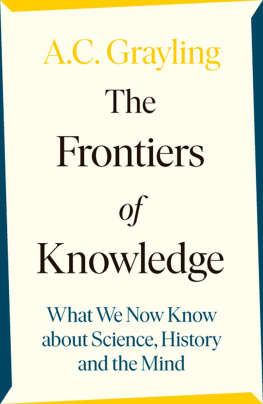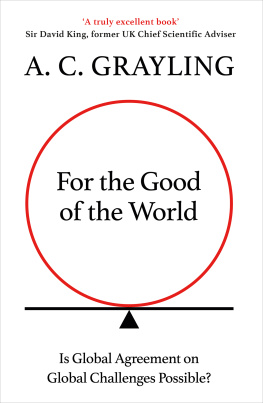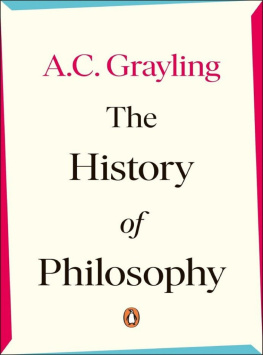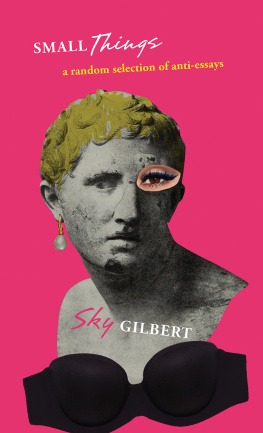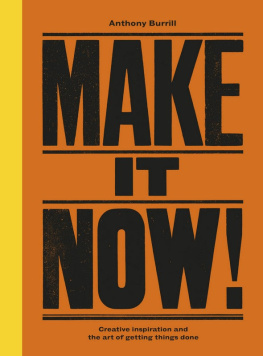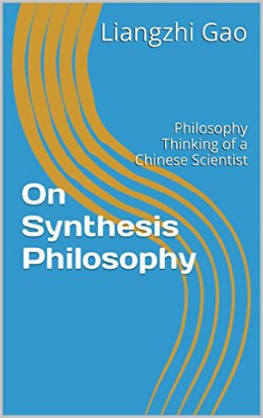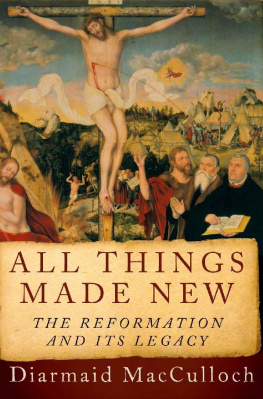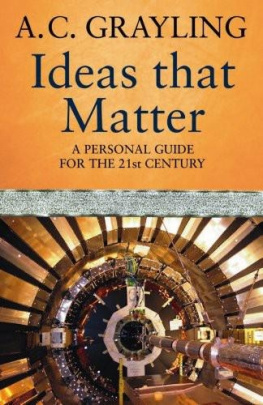THE CHALLENGE OF THINGS
Thinking Through Troubled Times
A. C. Grayling

For Maddie with love
verbis accipe: aequitas causa sapienta
occasio tempus
Contents
Did we come here to laugh or cry? Are we dying or being born?
Carlos Fuentes, Terra Nostra
When a war begins, most people hope that it will be brief. Very few people realise that it will almost certainly outlast the actual shooting. It takes centuries to build a town, a society, a culture; it can take mere seconds of bombing to destroy them. Rebuilding is part of a war indeed all of a wars consequences are part of the war. This includes legacies of resentment, changed orders of things, displacements of populations. What, therefore, of the non-material the civilisational scars left by war and conflict? As Christian Friedrich Hebbel said, What a vast difference there is between the barbarism that precedes culture and the barbarism that follows it.
It is a commonplace that every age, or almost every age, thinks that its own time is one of special difficulty. The barbarians seem always to be at the gate. Alas, in our present day this is rather too literally so. But what many fail to realise is that the barbarians are a more various and numerous group than just those unspeakable villains who behead hostages in the desert. Barbarians might also wear ties and travel business class, they might occupy seats of power in government. They might be us, ourselves, when we give up certain civil liberties and betray our own values in the spurious belief that this will protect us from terrorism, organised crime, unwelcome immigration. Forms of dismantling civilisation might differ, but the result is the same.
It is food for thought to recall that the Pyramid of Cheops at Giza was the tallest building in the world for 5,000 years. We are used to tall buildings now; everywhere aspires to be Manhattan. In their rush to mimic that architecture, the cities of the Middle East and Far East, from Abu Dhabi to Shanghais Pudong district, show how much peoples can desire what they also resent, and what flattery and anger, what rivalry and ambition there is in emulation. Two Middle Eastern cities built enormous twin-tower skyscrapers in the years immediately after New Yorks twin towers were destroyed in a murderous spectacular. China has torn down its hutongs and replaced them with forests of tall buildings separated by multi-lane highways, in its headlong rush to seem more modern than the times. The world has become one self-similar place to outer view, but it remains various and unpredictable within, moving in directions that our eyes are not always looking in. Do we see things as they are, or do we see the illusions we create out of our worst fears and simplest hopes?
At time of writing we are fixated on the difficulties of one part of the world the Middle East while the worlds centre of gravity is shifting with increasing rapidity to the Far East, where the dynamics of change, across everything from energy hunger, population explosion, the rush for wealth, and militarisation, pose a new pattern of questions for the future.
Every generation needs to attempt an interpretation of the time it lives in. The essays that follow are a miscellany unified by the effort to do that: to explore, and to suggest perspectives upon, different facets of this time in our world. The first part addresses some of the negatives of our circumstances, the second some of the positives. They are offered as contributions to the conversation we have with ourselves about these matters, from the small and relatively unimportant to the great and significant: war, weapons, China and the future, Russia, human rights, the Middle East, the meaning today of the history of the West, oil, religion, education, thinkers and ideas. Our many and various concerns have one thing in common: they are our concerns, unignorable and pressing.
These reflections are, in the broadest sense of this term the sense that belongs to everyone philosophical reflections, because they touch on the general that lies in every particular, and on the matters of principle that run beneath every matter of the moment.
For if there is one thing we can know with certainty it is that we must keep thinking and discussing, presenting each other with ideas and listening to each others proposals for how we can move from our dilemmas towards a better world, relying on our best hopes. We have to have the courage to keep thinking in the face of all that confuses and disconcerts us. As C. P. Snow said, despair is a sin: we have to keep searching for a way through the hedge of thorns to the hidden garden beyond, believing in ourselves enough to think that if that garden does not exist, we can create it from those very thorns if need be.
Many of the essays originated in places as various as Prospect magazine, the Guardian, Observer, Times, New Statesman, New York Review of Books, talks on the BBC, chapters in edited collections, and elsewhere. I am grateful to editors and commissioners for the initial stimulus and opportunity provided, and to readers and audiences for their responses. It is a privilege to be part of the conversation, from which one always learns more than one can hope to contribute.
New College of the Humanities
London, 2014
DESTRUCTIONS
and
DECONSTRUCTIONS
It is an unwelcome reflection that history tends to be a thin list of names and dates for most people, its sweated and bloody realities and their meanings lost among labels. Take the label the First World War. Even as it happened people called it the Great War, because not since the seventeenth century had conflict been so general across Europe, though this time with the benefit of industrial means of slaughter in the form of new military technologies. But the appropriation of a label is the first step to limiting the perception of those who were not there, and therefore only grasp at third hand the true significances of the event.
Consider what these are in relation to the First World War, which occasioned a shocking change to history of such deep seriousness that we are trying to deal with it still.
Everyone knows about the massacre of the trenches the result of a hideous encounter between modern weaponry and outdated tactics, which saw men walking line abreast into hailstorms of machine-gun and artillery fire. But it is a surprise to remember that it was a short war, only four years in duration against the Second World Wars six years and the ten years and counting of the conflict in Afghanistan.
But we need to remember too the collapse of Russia into revolution, and the Soviet era that followed; and of the Spartacist uprising in Germany at the wars end, along with the redrawing of Europes boundaries and the reshuffling of colonial holdings in Africa and elsewhere.
We need to remember that in the shock and depletion of the wars immediate aftermath, a global influenza pandemic killed more people than died in the war: the wars four years of military and civilian deaths totalled 37 million, the one year of the pandemic killed over 50 million.
We need to remember that women moved in large numbers from the home to the munitions factories and farmlands, inducing a major change in social attitudes and womens status. In Britain women replaced 2 million men in the workforce, producing 80 per cent of the munitions. Their reward in 1918 was to be given the vote for the first time though only for those of thirty years of age and over; it took another ten years for the voting age to be equalised for both sexes. Millions of women experienced widowhood and spinsterhood as a result of the war, or found themselves caring for disabled and traumatised husbands and male relatives for the rest of their lives.
Next page
